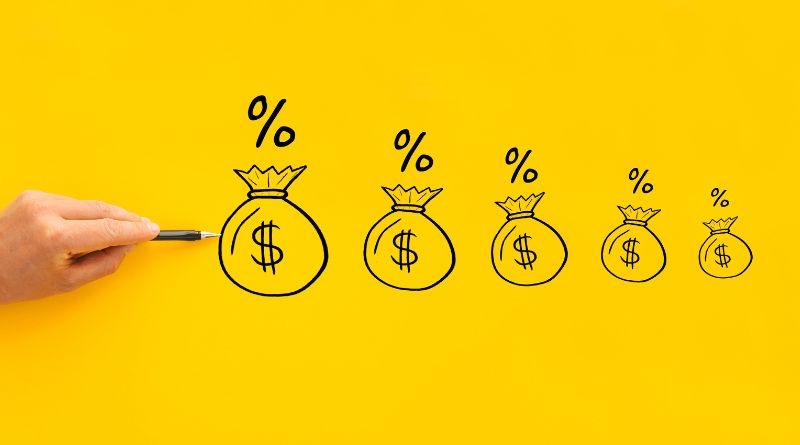Government Announces Major Changes to Interest Rates – What You Need to Know
Introduction to the Recent Announcement by the Government
The recent announcement by the government regarding major changes to interest rates has sparked a lot of discussion and debate among financial experts and consumers alike. The government has decided to reduce the benchmark policy rate from 7.5% to 6%, which is expected to have a significant impact on the economy.
The reduction in interest rates is part of an effort by the government to promote economic growth and provide relief for individuals who are struggling financially due to high borrowing costs. This move will make loans more affordable, including mortgages, car loans, and personal loans. As a result, it is expected that there will be an increase in consumer spending, which will stimulate economic growth.
While some experts have praised this move as a necessary step towards improving the economy, others are concerned about potential inflationary pressures that may arise as a result of lower interest rates. Additionally, there are concerns about how these changes may affect savers who rely on income from savings accounts or other fixed-income investments such as bonds or CDs. Regardless of these concerns, it is clear that this recent announcement by the government will have far-reaching effects on both consumers and businesses across various sectors of the economy.
Impact of the Interest Rate Changes on Individuals and Businesses
The recent announcement of major changes to interest rates by the government has raised concerns among both individuals and businesses. The impact of these changes will be felt differently by different sectors, but overall they are expected to have a significant effect on the economy.
For individuals, changes in interest rates can affect their borrowing power as well as their savings. Those with loans or mortgages may see an increase in their monthly repayments, while savers may see lower returns on their deposits. This could lead to reduced spending and slower economic growth.
Businesses will also be affected by the changes in interest rates as they may impact investment decisions and financing options. Higher interest rates could make borrowing more expensive for businesses, which could lead to decreased investment and hiring. On the other hand, lower interest rates could encourage borrowing and stimulate business activity.
Overall, it is important for both individuals and businesses to carefully consider how these changes will affect them and adjust their financial plans accordingly.
Also read: RajkotUpdates.news: The Ministry of Transport Will Launch a Road Safety Navigation App
Details of the New Interest Rates and How They Compare to the Previous Ones
The government has recently announced major changes to interest rates, which are set to impact millions of borrowers and savers across the country. The new interest rate changes will take effect from the beginning of next month, and will see a slight increase in borrowing costs for those with variable rate loans. Fixed-rate mortgages, however, will remain largely unchanged.
The new interest rates come as part of the government’s efforts to manage inflation and stabilize the economy in light of ongoing economic challenges. While some borrowers may experience slightly higher monthly repayments as a result of the changes, many industry experts believe that they will ultimately help to support long-term economic growth and stability.
Overall, if you’re thinking about taking out a loan or mortgage in the near future, it’s important to carefully consider these new interest rate changes before making any decisions. By staying informed and keeping up-to-date with any further announcements or developments from the government, you’ll be better equipped to make informed financial decisions that support your long-term goals and objectives.
Implications of the Interest Rate Changes on the Economy
The interest rate changes have a significant impact on the economy, affecting both individuals and businesses. Higher interest rates mean that borrowing becomes more expensive, reducing the amount of money available for investments and spending. For individuals, this may lead to decreased purchasing power as they have to allocate more funds towards debt repayment rather than discretionary spending.
For businesses, higher interest rates can lead to increased costs of capital and reduced profitability. This may result in companies scaling back on investment projects or delaying expansions due to the high cost of financing. In addition, higher interest rates may also lead to an increase in unemployment as companies reduce their workforce to cut costs.
On the other hand, lower interest rates can stimulate economic growth by making borrowing cheaper and increasing consumer spending power. Lower borrowing costs can encourage businesses to invest in new projects and expand operations, leading to job creation and economic expansion.
Overall, changes in interest rates have far-reaching implications on various aspects of the economy. It is important for individuals and businesses alike to stay informed about these changes so that they can make informed financial decisions that align with their goals and objectives.
Analysis of the Government’s Decision and its Rationale
The recent announcement by the government regarding major changes to interest rates sent shockwaves across the financial industry. The decision to lower interest rates by 0.25% was met with mixed reactions, with some experts applauding it as a necessary step towards boosting economic growth and others expressing concern over its potential negative impact on savers.
According to the government, the decision was taken in response to a slowing economy and rising levels of debt. They argued that lower interest rates would encourage borrowing and spending, thereby stimulating economic activity. Furthermore, they claimed that this move would help to keep inflation under control and prevent further job losses.
However, critics have pointed out that this decision could have unintended consequences such as discouraging saving and encouraging risky borrowing behavior. Some have also raised concerns about the impact on pension funds and other long-term savings vehicles, which rely heavily on interest income. Overall, only time will tell whether this move proves to be beneficial or detrimental for both individuals and the economy as a whole.
Reaction of Different Stakeholders to the Interest Rate Changes
Following the announcement of major changes to interest rates by the government, different stakeholders have reacted in various ways. Banks and other financial institutions are likely to be most affected, with many expected to adjust their lending rates accordingly. This may lead to increased profitability for some banks while others may struggle.
Businesses that rely heavily on loans to finance their operations will also be impacted by the changes. Those with fixed rate loans will benefit from lower interest payments, whereas those with variable rate loans may see an increase in costs. Consumers who have taken out loans or mortgages may also experience similar effects depending on their loan terms.
Additionally, investors are likely to respond differently depending on the type of investments they hold. Bond prices tend to fall when interest rates rise, making them less attractive for investors seeking stable returns. Conversely, stocks may become more appealing as businesses typically benefit from a strong economy that results in higher interest rates. Overall, it is clear that the announcement of major changes to interest rates has far-reaching implications for various stakeholders across different sectors of the economy.
Future Outlook and Predictions on the Interest Rates
The recent announcement by the government to make major changes to interest rates has brought about mixed reactions amongst different sections of society. The move is expected to significantly impact the economy as it will affect borrowing and lending, investment decisions, and ultimately the cost of living for individuals. It is predicted that the new interest rate regime will lead to lower rates for borrowers, which could stimulate economic growth.
While this move is seen as a positive development, there are also concerns about its potential impact on inflation. Lower interest rates may lead to an increase in demand for goods and services, which could drive up prices. Some experts predict that inflation may rise moderately in response to these changes but stay within manageable levels.
Overall, the future outlook for interest rates remains uncertain as various factors such as the pandemic’s effect on economies worldwide continue to play out. However, most financial analysts agree that these shifts in policy are likely going to persist over time with some minor adjustments along the way based on how well they work out initially. Anyone affected by these changes should keep a close eye on developments and adjust their financial plans accordingly.




